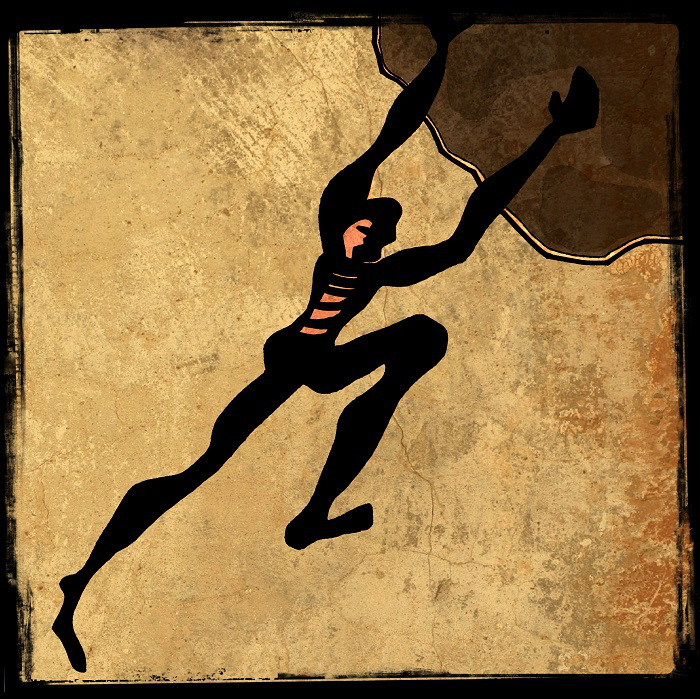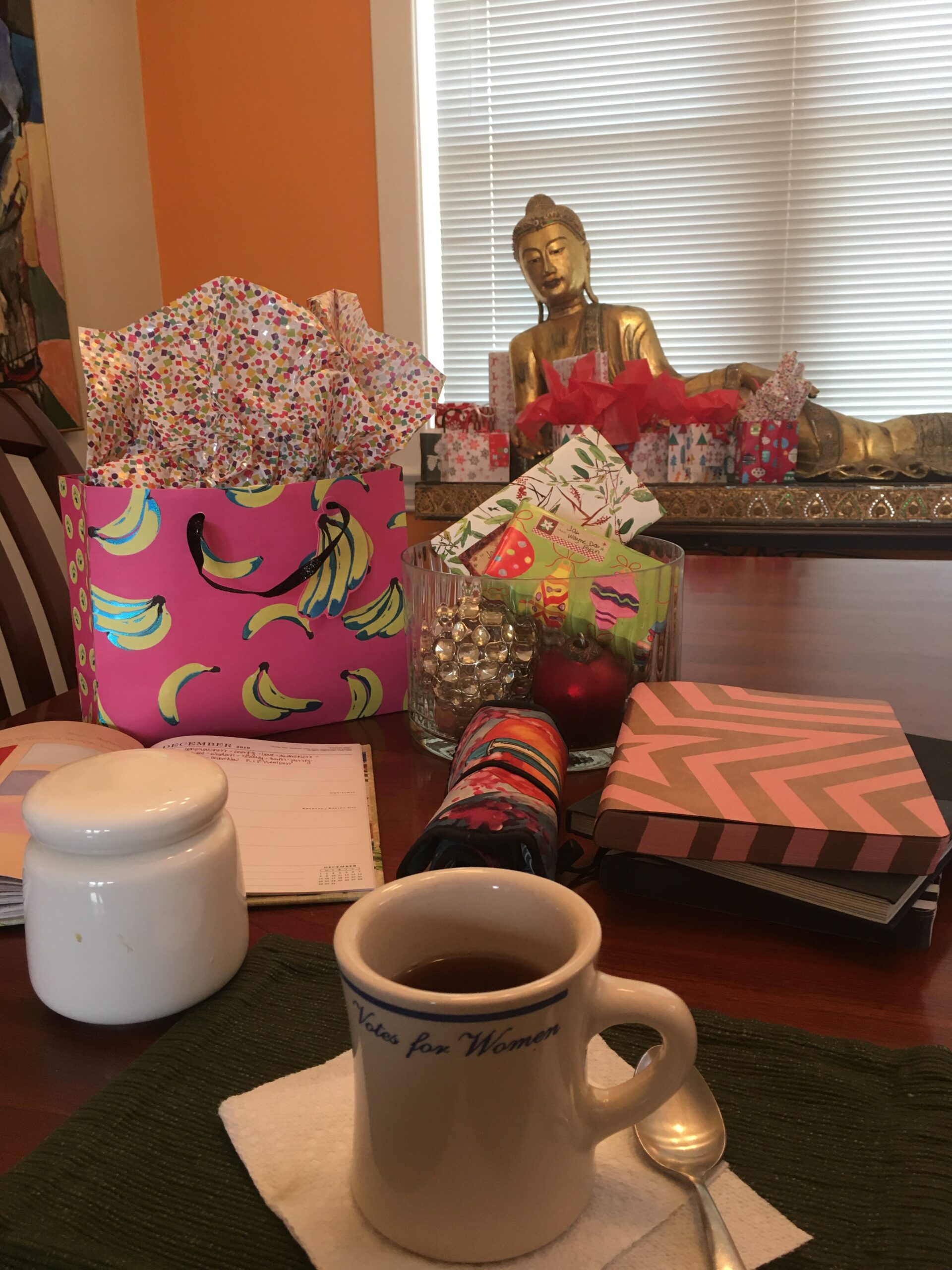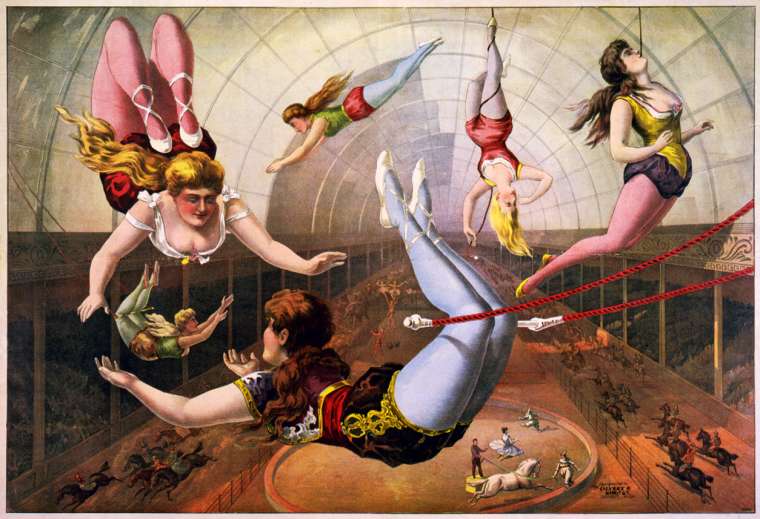Interested in a Sunday Morning Sit?
I’m thinking about offering a new weekly sit, every Sunday morning, from 8:30 to 9:00 (Central Time), on Zoom of course. I’d ring a bell to begin and end the session — but there’ll be no check-in, no instructions, no dharma talk — just a chance to sit together as a group in noble silence.
If you’re interested, let me know by email here. It could be a little earlier in the morning or later, if that work’s better. Or it could be on a different day of the week. Just let me know. This would be a drop-in group. No need to commit to coming every week. And no fee, of course, but donations are always welcome.
I’m thinking of starting next Sunday, May 2.
Send me an email here and I’ll send you the link.
Introducing: Tuesday Night Insight Group!

Beginning January 7, Jan Rosamond will lead a new, weekly meditation group — Tuesday Night Insight — which will offer teachings from the Early Buddhist (Theravada) tradition, practice instructions, silent meditation, and group discussion. Both new and experienced students are welcome.
The group meets on a “dana” (generosity) basis. There is no fee and no need to register in advance. Chairs are provided, but if you prefer a cushion, please bring your own.
Where: First Unitarian Church of St. Louis, 5007 Waterman (at Kingshighway), 63108. Free parking in the church lot.
When: Tuesdays, 7:00 to 8:30 pm
Note: The front door will be locked. If you are running late, please text 314-210-8820 BEFORE 7 pm so we can make sure someone will be in the lobby to let you in.
***

Jan Rosamond has competed four years of formal training through Spirit Rock Meditation Center, where she is certified as a Community Dharma Leader.
Jan has practiced in the Early Buddhist (Theravada) tradition for more than 20 years with a variety of teachers including Jack Kornfield, Joseph Goldstein, and Sharon Salzberg. She’s sat more than 500 nights of silent retreat including several 1- and 2-month intensive meditation retreats in the U.S., South Africa, and Burma (Myanmar). Her mentoring teacher is Phillip Moffitt.
***
For more information, contact Jan by email here or text 314-210-8820.
Speaking as an Uninstructed Worldling…

It looks like tonight will be the final time our KM (Kalyana Mitta) group will meet to discuss Bhikkhu Bodhi’s In the Buddha’s Words, which we’ve been doing twice a month now for several years!
In honor of the occasion I offer this quote from the final chapter (The Planes of Realization), which includes Bhikkhu Bodhi’s oddly science-fiction-invoking term: “uninstructed worldling” — more prosaically translated as “run-of-the-mill person”:
“The purpose of the Buddha’s path is to lead uninstructed worldlings to the attainment of the Deathless, and the stages of realization are the steps toward the completion of this process…
“To reach the attainment of stream-enterer [first level of realization], the aspiring disciple should cultivate the ‘four factors leading to stream-entry’, which are:
“Associating with wise and virtuous spiritual guides; listening to the true Dhamma; attending carefully to things; and practicing in accordance with the Dhamma.”
***
Sounds do-able to this uninstructed worldling!
Perhaps to Bloom
 The next book my CDL “White Awake” discussion group will be reading is The Warmth of Other Suns: The Epic Story of America’s Great Migration, by Isabel Wilkerson.
The next book my CDL “White Awake” discussion group will be reading is The Warmth of Other Suns: The Epic Story of America’s Great Migration, by Isabel Wilkerson.
It got rave reviews when it came out in 2010, and it won tons of awards, including the National Book Critics’ Circle Award for Nonfiction and the Pulitzer Prize.
But I didn’t read it back then. I remember hearing it mentioned in favorable terms, but I really wasn’t paying attention. Probably because I didn’t think it had anything to do with me.
But that was then.
I’m a little more awake now.
***
Epigraph:
(taken from an early edition of Black Boy, by Richard Wright)
I was leaving the South
To fling myself into the unknown….
I was taking a part of the South
To transplant in alien soil,
To see if it could grow differently,
If it could drink of new and cool rains,
Bend in strange winds,
Respond to the warmth of other suns
And, perhaps, to bloom.
***
Heartwood
Our Dharma Book Group meets tonight (we’re reading In the Buddha’s Words, by Bhikkhu Bodhi), and it looks like our discussion will take us into The Greater Discourse on the Simile of the Heartwood (MN 29), which includes one of my favorite quotes from the Buddha.
Here’s what Bhikkhu Bodhi has to say:
“The sutta is about a ‘clansman’ who has gone forth from the household life into homelessness intent on reaching the end of suffering. Though earnest in purpose at the time of his ordination, once he attains some success, whether a lower achievement like gain and honor or a superior one like concentration and insight, he becomes complacent and neglects his original purpose in entering the Buddha’s path. The Buddha declares that none of these stations along the way — not moral discipline, concentration, or even knowledge and vision — is the final goal of the spiritual life…”
The Buddha says, “But it is the unshakeable liberation of mind that is the goal of this spiritual life, its heartwood, and its end.”
***
“Unshakeable liberation of mind.” I just love that!
Beneath the Surface Glitter
The KM Book Study group meets tonight to continue our discussion of In the Buddha’s Words, by Bhikkhu Bodhi. We’re on Chapter 6: Deepening One’s Perspective on the World.
Here’s an excerpt:
“To follow the Buddha in the direction he wants to lead us, we have to learn to see beneath the surface glitter of pleasure, position, and power that usually enthralls us, and at the same time, to learn to see through the deceptive distortions of perception, thought, and views that habitually cloak our vision.
“Ordinarily, we represent things to ourselves through the refractory prism of subjective biases. These biases are shaped by our craving and attachments, which they in turn reinforce. We see things that we want to see; we blot out things that threaten or disturb us, that shake our complacency, that throw into question our comforting assumptions.
To undo this process involves a commitment to truth that is often unsettling, but in the long run proves exhilarating and liberating.”
***
Let’s dive in!
This Is Possible
Last night our Dharma Book Group had a great discussion about this line from In the Buddha’s Words, by Bhikkhu Bodhi:
“For Early Buddhism, the ideal householder is not merely a devout supporter of the monastic order but a noble person who has attained at least the first of the four stages of realization, the fruition of stream-entry.”
We don’t talk much about stream-entry in our weekly sangha, so I thought it might be helpful to post this explanation of what that is, again by Bhikkhu Bodhi from In the Buddha’s Words:
“The stream-enterer abandons the first three fetters: identity view, that is, the view of a truly existent self either as identical with the five aggregates or as existing in some relation to them; doubt, about the Buddha, the Dhamma, the Sangha, and the trainings; and the wrong grasp of rules and observances, the belief that mere external observances, particularly religions rituals and ascetic practices, can lead to liberation.
“The stream-enterer is assured of attaining full enlightenment in at most seven more existences, which will all take place either in the human realm or the heavenly worlds. The stream-enterer will never undergo an eighth existence and is forever freed from rebirth in the three lower realms–the hells, the realm of afflicted spirits, and the animal realm.”
To which I would like to add these words from the Buddha:
If this were not possible, I would not ask you to do it.
The Gift of Wise Speech
At our Dharma Book Group last night, we discussed the chapter on Wise Speech in Jospeh Goldstein’s Mindfulness: A Practical Guide to Awakening. We were sitting by the fire, in front of a lovely Christmas tree (thank you, Anne), so it seemed fitting to talk about Wise Speech as a Generosity practice.
What is Wise Speech?
It is spoken at the proper time; what is said is truthful; it is spoken gently; what is said is beneficial; it is spoken with a mind of lovingkindness…One speaks at the right time, in accordance with facts, speaks what is useful, speaks of the Dharma…One’s speech is like a treasure, uttered at the right moment, accompanied by reason, moderate and full of sense.
When we lie, we are usually trying to hold on to something — to power, to a view of ourself, to whatever we fear we will lose if we told the truth. When we speak harshly, we’re doing the same thing. Same when we gossip or say something malicious or divisive. Or when we just go on blathering about something that’s of no use or interest whatsoever…whose only purpose is to try to prop up our fragile sense of self. This is grasping. It’s not helpful. It’s not even pleasant!
So dear reader, my gift to you — and to the world — is the intention to practice honesty and goodwill by not speaking (or writing) in ways that are false, harsh, divisive, or mindless.
It’s a gift to you; but it’s also a gift to myself.
Pass it on.
To Pass from Entanglement to Peace
The topic for tonight’s “Let’s Talk” Dharma Discussion is Wise Intention, which doesn’t get a lot of “air time” at drop-in meditation groups, probably because what it means is to cultivate the intention to practice Lovingkindness, Compassion, and Renunciation. Just mentioning the word “Renunciation” is often enough to send people heading for the exit! (Mentally, if not physically.)
But here’s what Bhikkhu Bodhi has to say in his excellent little book, The Noble Eightfold Path:
“Desire is to be abandoned not because it is morally evil but because it is the root of suffering. Thus renunciation, turning away from craving and its drive for gratification, becomes the key to happiness, to freedom from the hold of attachment.
“…To move from desire to renunciation is not, as might be imagined, to move from happiness to grief, from abundance to destitution. It is to pass from gross, entangling pleasures to an exalted happiness and peace, from a condition of servitude to one of self-mastery. Desire ultimately breeds fear and sorrow, but renunciation gives fearlessness and joy…
“When we methodically contemplate the dangers of desire and the benefits of renunciation, gradually we steer our mind away from the domination of desire….
“Real renunciation is not a matter of compelling ourselves to give up things still inwardly cherished, but of changing our perspective on them so that they no longer bind us. When we understand the nature of desire, when we investigate it closely with keen attention, desire falls away by itself, without need for struggle.”
***
People always want to talk about giving up chocolate when the topic of Renunciation comes up, but I don’t think it’s about giving up something delightful because someone says it’s not “good for you.” What I’ve found instead that it’s about letting the shackles fall away when you realize that what you’ve been doing (thinking, saying,…OK, eating, etc) is not really working for you!!!
No Thanks, I’ll Pass
 Our KM group met last night to discuss the chapter on Renunciation in Joseph Goldstein’s Mindfulness: A Practical Guide to Awakening. The word “renunciation” has a lot of negative connotations, but in this case we’re not talking about depriving ourselves of joy and comfort and pleasure. We’re finding peace and ease by releasing ourselves from the “addiction” of habitual patterns.
Our KM group met last night to discuss the chapter on Renunciation in Joseph Goldstein’s Mindfulness: A Practical Guide to Awakening. The word “renunciation” has a lot of negative connotations, but in this case we’re not talking about depriving ourselves of joy and comfort and pleasure. We’re finding peace and ease by releasing ourselves from the “addiction” of habitual patterns.
Joseph talks about “the wisdom of no, when we recognize that some things are not skillful, not helpful, not leading to happiness. At those times,” he writes,”we can practice saying, ‘No thanks, I’ll pass.'”
But we are often so used to our habits — even our painful, stress-causing habits — that we forget they can be changed.
I like Stephen Mitchell’s take in Parables and Portraits:
“We tend to think of Sisyphus as a tragic hero, condemned by the gods to shoulder his rock sweatily up the mountain, again and again, forever.
“The truth is that Sisyphus is in love with the rock. He cherishes every roughness and every ounce of it. He talks to it. Sings to it. It has become the mysterious Other. He even dreams of it as he sleepwalks upward. Life is unimaginable without it, looming always above him like a huge gray moon.
“He doesn’t realize that at any moment he is permitted to step aside, let the rock hurdle to the bottom, and go home.
“Tragedy is the inertial force of the mind.”






